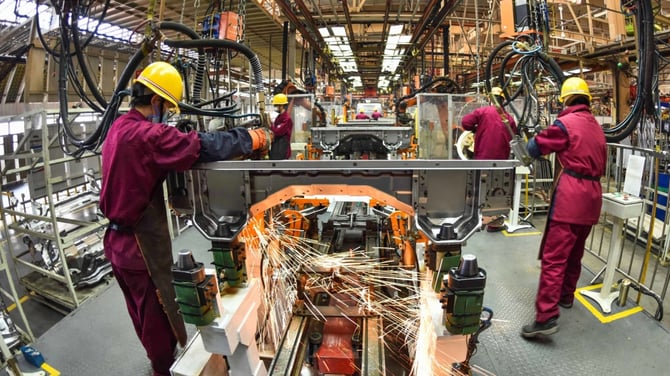China’s Factory Activity Falls Amid Strict COVID Restrictions

China’s factory activity slid in November for a second consecutive month, underlining the economic toll of the country’s punitive “Zero COVID” policies that have sparked mass protests in the country.
China’s Purchasing Managers’ Index (PMI) dropped to 48 compared with 49.2 in October. A score over 50 reflects growth while a score under 50 represents contraction. The service sector PMI also suffered, falling to 46.7 from 48.7 in October.
Locked-down areas of China currently account for more than 25% of GDP, more than at the height of the Shanghai lockdown in April. However, there has been some light at the end of the tunnel as the central Chinese city of Zhengzhou, home to the world’s largest iPhone factory, has lifted a five-day COVID lockdown.
Zhengzhou is the home of “iPhone City,” a gargantuan manufacturing site owned by Taiwanese contract manufacturer Foxconn. The area normally houses up to 200,000 workers producing products for Apple, such as its flagship iPhone 14 range. Last Friday, the city locked down its urban districts for five days as COVID-19 cases surged.
What does this mean for me?
China’s economy is expected to fall short of 3% GDP growth in 2022, which would mark one of the lowest expansion years in decades. Chinese authorities this month rolled out a slate of policies to prop up the economy, which is also grappling with a property slump and weakening global demand for Chinese goods. Analysts point out that rolling back COVID restrictions would be one of the easier fixes for the embattled economy.
More News

US Moves to Ease Latin American Tariffs as Food Inflation Mounts
2 days ago

Japan Faces First GDP Shrinkage in Six Quarters as Tariffs Bite
2 days ago

India’s Inflation Dip Strengthens Case for RBI Easing
1 week ago

Europe Rallies as Shutdown Eases, Earnings Impress
1 week ago

Germany’s Trade Surplus Slides as Imports Outpace Exports
1 week ago

Markets Rally as US Moves Toward Ending Prolonged Shutdown
1 week ago

China’s Export Decline Highlights Strain in US Trade Relations
1 week ago
.webp)
Canada’s Budget Falls Short of Economic Breakthrough
1 week ago